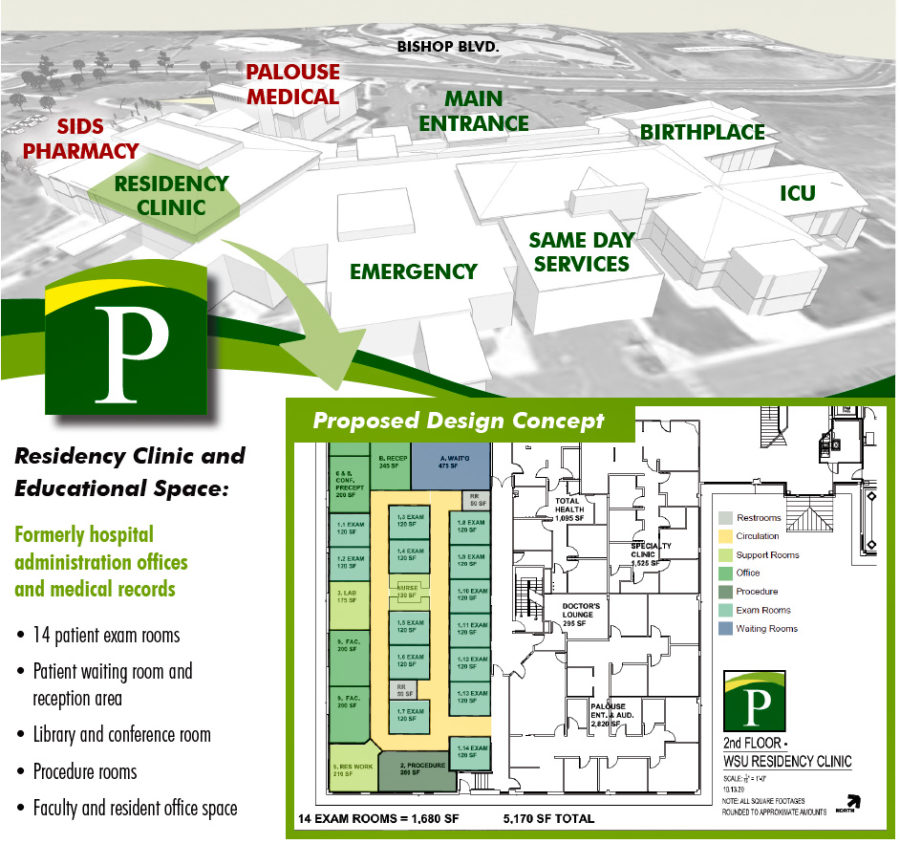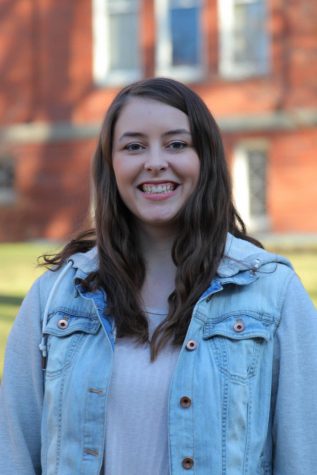Hospital received $300,000 for residency program
Renovation would include 5,000 square feet of space for exam rooms, library, faculty offices
Pullman Regional Hospital’s family medicine residency program will be open to all medical school graduates wanting to complete their three-year residency in Pullman.
March 16, 2021
Pullman Regional Hospital, in partnership with the WSU Elson S. Floyd College of Medicine, received a $300,000 grant for renovations to house a proposed family medicine residency program.
The Sunderland Foundation grant will fund a remodel of about 5,000 square feet of the current hospital administration wing to 14 exam rooms, study spaces, offices, a library and a waiting area, said Alison Weigley, PRH director of external relations.
The program will be open to all medical school graduates who want to complete their three-year residency in Pullman, she said.
Pullman Mayor Glenn Johnson and local farmer Wayne Druffel lead the PRH Next Era of Excellence committee responsible for fundraising efforts, Weigley said.
The hospital will raise about $1.55 million for the clinical and educational space, she said.
“We’re getting extremely close to that,” Johnson said. “We can almost smell that conclusion, but you never know with rising costs and construction.”
Over 800 donors have contributed to the Next Era of Excellence campaign, he said.
The hospital also received a $750,000 grant from the U.S. Department of Health and Human Services’ Health Resources and Services Administration grant back in July 2019, according to WSU Insider.
Dr. Stephen Hall, developing program director, has worked at PRH for 30 years and will lead the program. He maintains connections with doctors at Palouse Medical, Weigley said.
About 10 years ago, Hall first voiced his vision to develop a family medicine residency program, Weigley said.
WSU directors applied for accreditation from the Accreditation Council for Graduate Medical Education in November 2020. They will receive word in May about being able to move forward, Johnson said.
If approved, construction for the new space will be slated for fall 2021, Weigley said. Students could be in the building as early as June 2022.
The program will accept three students annually for three years, with a cap of nine residents, she said.
Students will receive training in different practices, including obstetrics, orthopedics, radiology and family medicine, Weigley said.
Studies show family medicine graduates who complete their residency in rural areas are three times more likely to continue practicing in smaller towns. Also, 56 percent of those students seek jobs within 100 miles of the hospital they graduated from.
“This helps us recruit physicians,” Johnson said. “It’s been proven over the years that when you have residents who are working here and continuing their education, you have a good chance to keep those doctors in your community.”


















